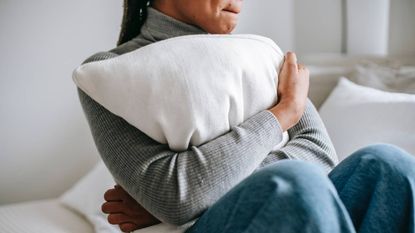

Is stress & anxiety affecting your sleep? If you suffer with anxiety or you’re feeling particularly stressed about something, these emotions often come out in full force when we’re about to go to sleep.
Going to bed filled with worry or anxiety results in you feeling tense and staying awake for longer with racing thoughts. Not only is this an unpleasant feeling but this rumination is actually the number one sleep killer that affects your ability to fall and stay asleep, and impacts how you perform and feel during the day.
It can be difficult to quieten your thoughts when you’re trying to get to sleep, especially if you’re an anxious person or have insomnia. So, we spoke to sleep experts at Mattress Online and they gave us 6 ways to overcome anxiety at bedtime and sleep better night after night.
P.S. It’s so important to get the best night’s sleep for our physical and mental health, so if your current mattress isn’t feeling right or giving you aches and pains, check out the best mattress for an upgrade.
1. Create a calming bedtime routine
Having a set bedtime routine will not only help you get the optimal amount of sleep that you need, but having a plan or schedule in mind can make your evening go a bit smoother and help you feel more in control. Alongside getting in your nightwear, turning down your bed and cleaning your teeth, Mattress Online recommends choosing calming and relaxing tasks to “signal to your brain that it’s time to relax and switch off.”
The things you decide to add to your bedtime routine are completely unique to you but some ideas that can make your mind and evening calmer could be having a bath, spraying essential oils, reading a book, listening to music, meditating or stretching before bed. By doing “these things consistently to form a habit, you’ll create the perfect relaxing routine to aid a good night’s sleep,” says Mattress Online.
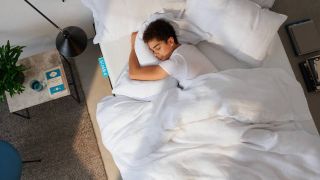
2. Journal before bed
Journaling has become increasingly popular over the years, especially during the pandemic when everyone’s emotions were extra heightened. While journaling can be done morning, evening or throughout the day, “writing down your thoughts before hitting the hay can significantly help to calm evening anxieties,” according to Mattress Online. The act of getting your thoughts out of your head and seeing them written down can be therapeutic and “allows you to process them instead of mulling them over in your mind, which can feel exhausting when you’re trying to get some sleep.” Journaling as part of your bedtime routine can help ease anxiety and settle your worries before you turn in for the night, so try to keep a notebook and pen by your bed.
Upgrade to smarter living
Get the latest news, reviews, deals and buying guides on gorgeous tech, home and active products straight to your inbox.
3. Clear your bedroom of clutter
Tidying your bedroom before sleep is a brilliant way to clear your mind. Preparing your room means you’re ready to get into bed, you won’t wake up to a mess and you’re ready to conquer the next day. Mattress Online recommends “starting with smaller tasks and working through them to avoid feeling unsure of where to begin. A clutter-free bedroom enhances your overall sleeping environment, promotes relaxation and decreases the number of distractions that may be stopping you from switching off.” So, make sure your bed looks inviting with the best duvet and best pillows, and complete tasks like sorting out your laundry, clearing the shelves and setting up your bedside table for the night.
4. Avoid napping during the day
While we all love a good nap (so much so that we have a guide on how to have the perfect nap), napping can impact your anxiety levels and how well you sleep at night. If you sleep too much during the day and at the wrong times, this can massively disrupt your sleep pattern, but if your body is begging for a nap, Mattress Online says to “keep it short – 30 minutes at most – and make sure it’s before 3pm so it doesn’t throw off your sleep schedule.”

5. Exercise regularly
Regular exercise works wonders for your physical and mental health, especially for those who suffer with anxiety. The act of exercising is an escape from your thoughts and it releases endorphins which boosts your mood, so it should be your go-to if you’re feeling overwhelmed. Another great thing about exercise is that it can help you sleep better if you do it at the right time. “Evening exercise can actually overstimulate your body, making it harder to fall asleep. If you do prefer to exercise in the evening, do it at least two hours before bed. This gives your body time to wind down and your heart rate to decrease ready for sleep.”
6. Avoid caffeine & alcohol
Caffeine and alcohol can massively affect your sleep pattern, whether you’re drinking too much of it or consuming it too close to bedtime. With anxiety or stress problems, “it can be easy to rely on alcohol and junk food as a coping mechanism when times are tough. However, these things combined with an excessive caffeine intake during the day can have a negative effect on sleep and heighten anxiety when it’s time to go to bed.” By cutting down your caffeine intake or drinking your last cup in a safe window – see what time you should stop drinking coffee for more – you can “lessen the stimulant effect on your body.”

Beth is Home Editor for T3, looking after style, living and wellness. From the comfiest mattresses to strange things you can cook in an air fryer, Beth covers sleep, yoga, smart home, coffee machines, watches, grooming tools, fragrances, gardening and much more. If it's something that goes in your house, chances are Beth knows about it and has the latest reviews and recommendations! She's also in the know about the latest deals and discount codes from top brands and retailers.
Having always been passionate about writing, she’s written for websites, newspapers and magazines on a variety of topics, from jewellery and culture, to food and telecoms. You can find her work across numerous sites, including Wedding Ideas Magazine, Health & Wellbeing, The Bristol Post, Fashion & Style Directory, TechRadar, CreativeBloq and more. In her spare time, Beth enjoys running, reading, baking and attempting craft projects that will probably end in disaster!
-
 What is Spartan’s DEKA fitness challenge?
What is Spartan’s DEKA fitness challenge?The race designed for all fitness levels tests strength, speed and endurance
By Bryony Firth-Bernard Published
-
 This no-nonsense dumbbell workout builds stronger quads, calves and glutes in 30 minutes
This no-nonsense dumbbell workout builds stronger quads, calves and glutes in 30 minutesThere's no reason to spend hours in the gym when there's workouts like this one
By Bryony Firth-Bernard Published
-
 Oura expert reveals 4 tips to manage stress for International Stress Awareness Week
Oura expert reveals 4 tips to manage stress for International Stress Awareness WeekOura reveals how to manage your stress levels and why not all stress is bad
By Bethan Girdler-Maslen Published
-
 Nutritionist reveals top 5 foods you should eat to fight the winter blues
Nutritionist reveals top 5 foods you should eat to fight the winter bluesHow many of these are included in your diet?
By Lizzie Wilmot Published
-
 7 tips to help you sleep with a blocked nose
7 tips to help you sleep with a blocked noseTackle the cold and flu season with these helpful sleep tips
By Bethan Girdler-Maslen Published
-
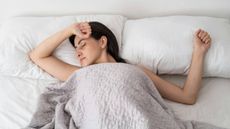 Amazon could be making its own smart pillow to combat sleep apnea – but I’m not convinced
Amazon could be making its own smart pillow to combat sleep apnea – but I’m not convincedAmazon files a patent to make its very own smart pillow
By Bethan Girdler-Maslen Published
-
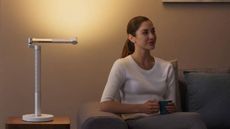 This Dyson desk light tracks local daylight and reacts to your surroundings – but it’ll cost you
This Dyson desk light tracks local daylight and reacts to your surroundings – but it’ll cost youThe Dyson Solarcycle Morph adds extra daylight to your routine
By Bethan Girdler-Maslen Published
-
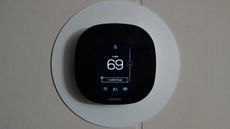 7 tips for keeping your home warm without turning the heating on, according to experts
7 tips for keeping your home warm without turning the heating on, according to expertsAvoid turning on the heating while keeping your home warm with these expert-approved tips
By Bethan Girdler-Maslen Published
-
 Protein Works expands its wellness lineup with two collagen-infused drinks
Protein Works expands its wellness lineup with two collagen-infused drinksBoth drinks are currently 10% off on the website
By Lizzie Wilmot Published
-
 These Ozlo sleep earbuds have a built-in alarm and audio masking – but they’ll cost you
These Ozlo sleep earbuds have a built-in alarm and audio masking – but they’ll cost youThe brains behind Bose have debuted the most advanced sleep earbuds
By Bethan Girdler-Maslen Published